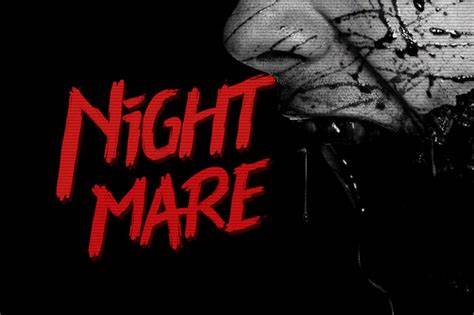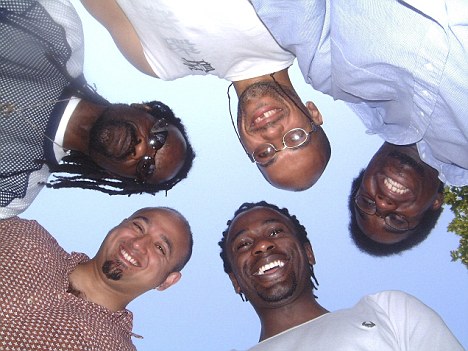Disclaimer: There is no easy way to win a game of chess. But that’s only if by “winning” you mean hunting down your opponent’s king until he is gasping for air in a solitary corner, his vision fading into the black and white static of the board as your opponent (John, Meera, or Jeremy) commits seppuku by resignation. Only gradually will you return to the hard seats and smudged tabletops of your school’s B-grade lunch counter. You'll blink in a daze at the face of your opponent who, you must remember, is your friend in real life.
If it’s John, you know he'll vent his frustration through his unusually long and eloquent middle finger. If it’s Meera, she’ll run back over every move and wonder where she went wrong. If it’s Jeremy, he’ll congratulate you with sad sad eyes that are worse than failure. You wouldn’t inflict that suffering on them even if you could; you’re the kind of person who catches wasps under a glass and escorts them outside, for crying out loud. At least, that’s how you rationalize your consistent losses. No, in order to win a game of chess, you will have to define your own purposes on your own terms.
Objective. You may not fully understand your objective yourself at first, but you have a sneaking suspicion that there’s a reason you’re always willing to play losing games. The trick is not to let any of your opponents realize your motives– what if someone tries to obstruct them? Perhaps the best way to explain the goal right now is “figure out your objective before your opponent does.”
Players. You will need the four members of your unofficial club known as RCIA, or the Racially Confused Individuals Association. To join, you must be a “halfsie”– half-white, half-non-white. This is of course a reference to the half-white, half-black of the chessboard, but also a testament to the nature of halfness itself: 50/50, incompletion, the friendship charm your bestie gave you when you moved from California and promptly forgot about. Sometimes you feel that you are simply that, two halves of a whole; two halves that, I might add, don’t always get along.
You: Half-Mexican who joined a chess club in second grade and haven’t improved since then. Power: You can quote the entire script of Napoleon Dynamite by heart, in case that comes in handy (somehow it never does).
John: Half-Korean chess wiz who loses once in a blue moon, sulking for several weeks each time. Power: He’s the one who came up with “RCIA”– in spite of everything, you have to admit that he's the funniest of everyone.
Meera: Half-Indian, specifically Keralite. She is new to chess, but she is an English major, and her sensitivity to the poetics of chess gives her a unique advantage. Power: Meera always comes the closest to guessing your Secret Objective™️. You need to keep careful watch on her.
Jeremy: Jeremy is technically half-white, it’s just that his other half is also white. But he is a quarter Portuguese, which is practically Spanish, which is practically Mexican, and if you’re allowed to join then so is he. Power: Jeremy actually studies chess moves in his spare time. Maybe even listens to chess podcasts. The mind boggles.
BONUS PLAYER: Josh is the half-Japanese barista who sits and watches you play on occasion. You probably won’t see him during this game, but he may make your coffees. Power: Doesn’t know how to play chess, and yet still knows more than you do.
The Game Plan. The proper way to set up chess between friends is two v. two, then have winners play each other. You'll play John first; you know that he knows that you know that you won’t make it to the next round, but he will graciously refrain from saying so.
First, he will offer to let you play white so you can have the first move. You must say, “Why do whites always get to go first?” It used to be a joke, but now it’s a formal ritual. If you skip this step, you might as well give yourself up for lost before you begin.
Next, agonize over which of the pieces you’re supposed to start with. You should really know by now which openings are best, but you can never remember whether it’s the center-right pawn or the center-left pawn, and whether it should move one or two spaces. Two spaces is bolder: it shows confidence, aggression, a “Morticia Addams eyebrow raise” that suggests (falsely) that you know something John doesn’t. It’s the Indiana Jones of opening moves. Make a feint for the left pawn, then the right, then say, “Actually, I think I should move my knight first.” Keep him in constant uncertainty.
You'll realize as soon as your fingertips leave your piece that you've made the wrong choice. Stay calm. The best chess player in the world doesn’t fear the second best, but the worst: you are entirely unpredictable. It will make you feel safe to remember that John cannot read your mind. And if he can’t guess your next move, he can’t guess your objective. For this reason it is absolutely imperative that you continue to make this sort of play.
It helps if you imagine each of your pieces as a complex, tragic figure. The king is quite elderly, while everyone knows that his dominant and domineering wife wears the pants around here. The two bishops are rivals involved in court intrigue to varying extents. The one that slides along the white squares is the queen’s confessor and a potential turncoat, which explains his mysterious, seemingly irrational decisions. Your black-squares bishop is loyal, but self-interestedly so. His moves are cool, politic, ruthless. This pawn here is overly hesitant, perhaps a bit stuffy; his brother, on the other hand, is reckless and self-sacrificing. Shake your head at his folly, though you admire his courage, and sigh when he falls into the clutches of one of John’s greedy knights (his knights have questionable claims to the title, and are maybe only vigilantes).
N.B.: It’s very important that this whole time you accuse John of making up moves in order to cheat, no matter how many times he’s explained the rules to you.
John will frown and try to discover your strategy, then quickly realize that you just don’t understand chess (you do, but you have your own intentions). He'll start to relax, absently pulling on the thin beard he's grown in the last week (John shaves every time he showers, but like most Koreans he doesn't produce body odor. True story). In the long stretches between his moves and yours, he’ll mention in the way he always does that he doubts his own existence. You are a math major and can prove to him, mathematically, that he does in fact exist. John will then counter by doubting the existence of math; he’s a philosophy major. You will be tempted to insinuate that philosophy does not exist, thus triggering an existential crisis of a magnitude visible from Mars. Do not, I repeat, do not give in to this particular impulse. Instead, ask him if that means he concedes. Of course he doesn’t concede. Throw him off the scent of your real objective, the one that is still hidden from yourself.
Drink loads of bad coffee in order to get rid of your migraines. When that doesn’t work, continue to insist that they are caused by caffeine withdrawal. Josh will brew you drink after drink (Josh made it into the game after all– what a pleasant surprise) and give John something else to talk about. John will say your coffee is bad. It’s too cold; it’s too bitter; Josh poured too many grounds into the machine. He is complaining about your coffee, that you’re drinking and he hasn’t even tasted. Maybe he’s trying to distract you from the game. Just smile and play along. You are on the cusp of discovering the purpose of chess, or even the meaning of life, which when you come down to it are really the same thing.
Meera must have beaten Jeremy because you will hear her belly-laughing a couple tables over. She has the most wonderful laugh you’ve ever heard: surprised and joyful and careless and serious all at once. She laughs so hard you can't believe her glasses stay on her face. She and Jeremy like to watch the tail ends of your games. Jeremy will remark that this is the most interesting board he's ever seen, and you agree. One of your pawns, the stuffy one, will have snapped and decided to avenge his brother, securing a promotion to Second Queen. The rest of your pawns will form a diagonal across the further right corner and imprison John’s rooks. But despite their noble efforts, John is only mopping up your mess with a few swift strokes of the black queen and his remaining black bishop. The black rooks will pass through your white pawns like smoke.
And it won’t bother you.
Because you were never afraid of losing the game, just afraid that there was never a game to play. Afraid that you have less in common with yourself than you thought, afraid that 50/50 really means 0/0, because you are not white and you are not Mexican and no matter what you told John or how well you argue otherwise, you are afraid you don’t exist.
Chess is conflict. It’s nice to know, for a little while, that you are a person who is capable of being conflicted. You are a person who exists. And there is another person, one outside of you, who is conflicted in the same way and who recognizes you as a whole.
“Checkmate.”
Two sides of the same coin. 50/50. Completion. The halves of a friendship charm clicking into place.
You all have the same objective, one that no one knew was a secret except for you.
Checkmate.





















.jpeg)


